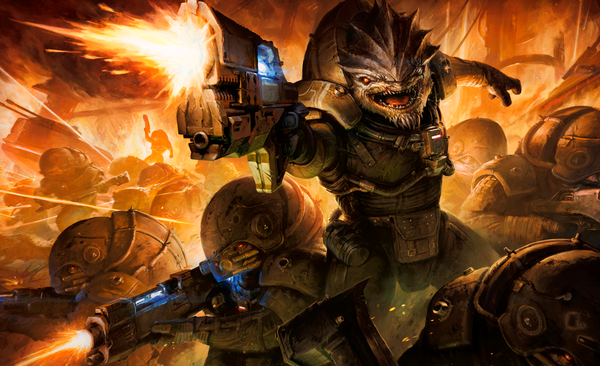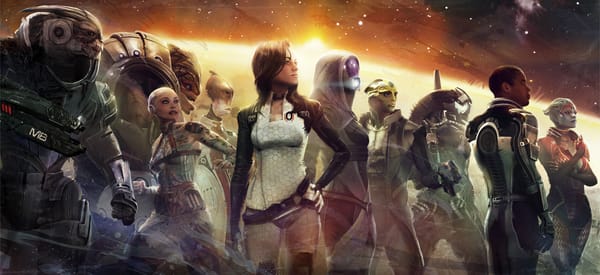Bioware’s Middle-earth: The Hidden Legacy of Tolkien in Mass Effect
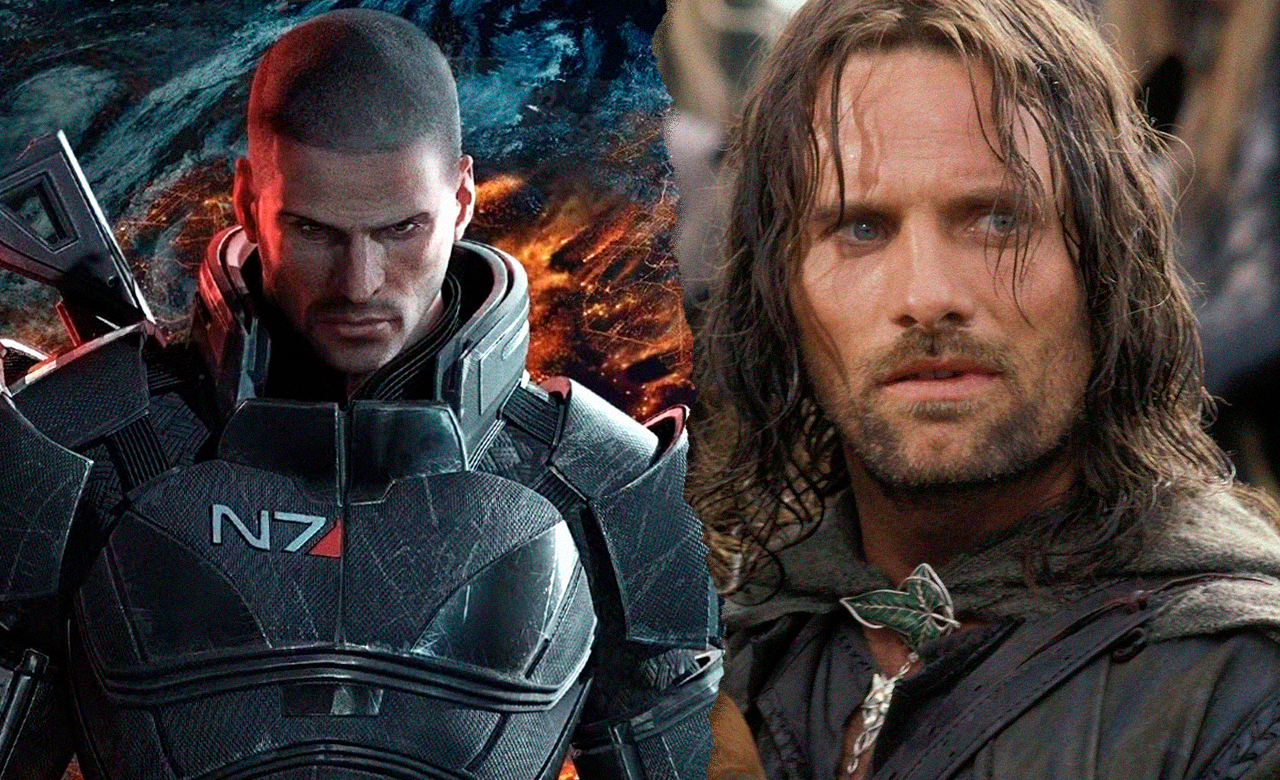
A few years ago, Michael Tucker (now a Narrative Designer at BioWare) uploaded a fascinating video to his YouTube channel in which he analyzed and reflected on how Mass Effect shares thematic and narrative elements with A Song of Ice and Fire, or more specifically, with HBO's Game of Thrones series. The main focus of the video was the parallels between Martin's work and Mass Effect: the Reapers and the White Walkers as looming threats that approach to destroy everything; alien civilizations and noble houses creating political tension, plots, and old rivalries that go back generations...
Building on all these parallels, Tucker suggests in his video that if a Mass Effect series based on the original trilogy were ever made (at the time the video was uploaded, the Amazon Mass Effect series hadn't been announced yet), it should take advantage of the elements it shares with Game of Thrones to become another global phenomenon—just like the HBO series was in its time.
However, while I agree that Martin's work and Mass Effect share a clear connection in terms of tone and structure, I believe that, on a mythological level, the story of Mass Effect seems to be in conversation with is actually Tolkien's—specifically The Lord of the Rings.
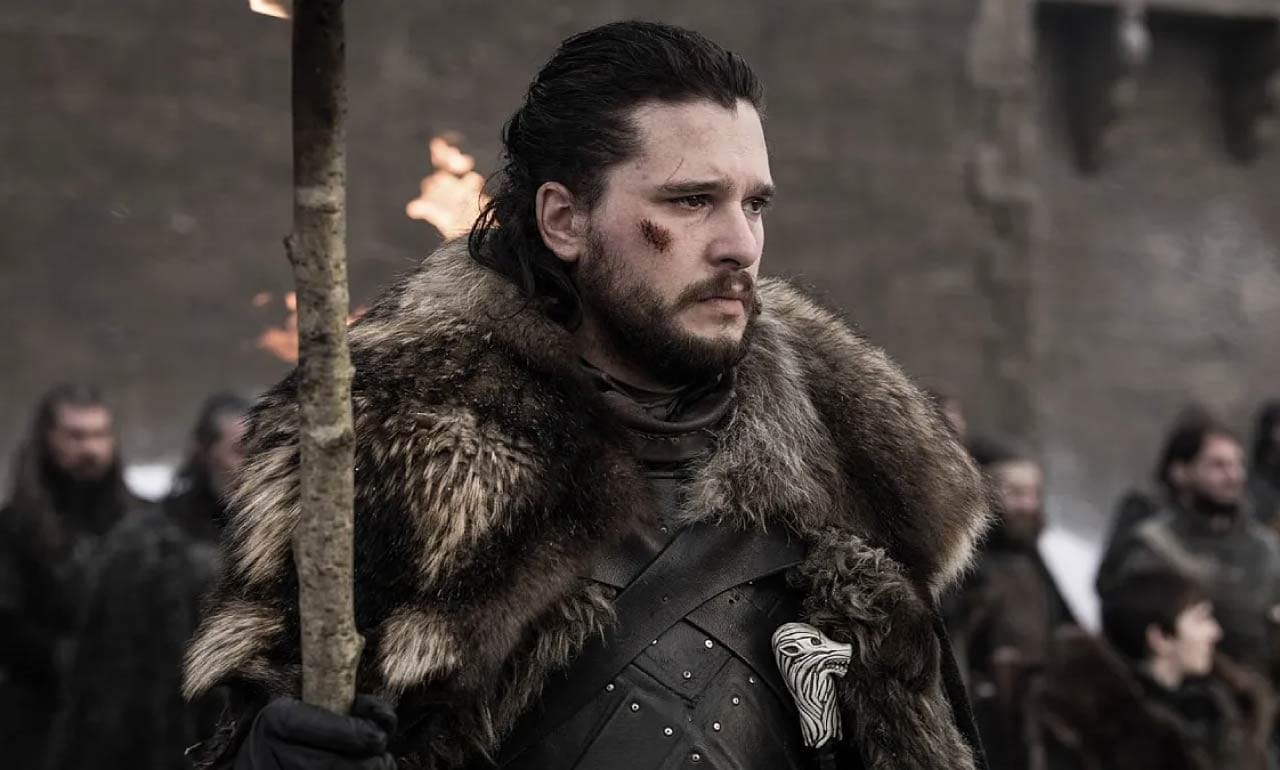
I know it might sound strange that, when talking about inspiration or works that share elements with Mass Effect, I'm bringing up The Lord of the Rings or Game of Thrones—two fantasy stories that clearly speak to each other. And while Mass Effect does respond to, reference, and take ideas from other major sci-fi works like Star Trek, I think it's interesting to reflect on how stories with seemingly very different themes can actually be much more connected than we might expect.
That's why I find it so fascinating that we're here, reflecting on and discussing something as specific as Tolkien's influence on a science fiction story like Mass Effect.
In fact, there's something that needs to be made clear before I go any further with this essay: Mass Effect is pure epic. That's one of the key points behind everything I'm discussing here.
Game of Thrones is, in many ways, almost an anti-epic—it often consciously deconstructs the epic genre and drags it into the mud. That's one of the defining traits and greatest strengths of Martin's work. Mass Effect, on the other hand— much like The Lord of the Rings—operates on a grander scale, telling a larger-than-life story about human willpower prevailing against impossible odds.
In both Middle-earth and the Milky Way, humanity is seen as warlike, selfish, and easily manipulated. Humans are treated with condescension or even outright disdain by the other races, and at the beginning of both stories, their role seems fairly irrelevant. But through the figure of a human unifier—Aragorn in The Lord of the Rings and Shepard in Mass Effect (yes, I know Aragorn is a Dúnedain, but he's still human)—a fellowship is formed, made up of all kinds of peoples and races. Together, under the leadership of this unifier, they take on the task of defeating a mystical and existential threat.
In both stories, the figure of the unifier and the formation of a diverse fellowship are central to understanding what these works are ultimately trying to say. Because in the end, when faced with a greater evil, all races set aside their old rivalries and historical tensions—and under human leadership, they unite to fight the threat that endangers them all equally.
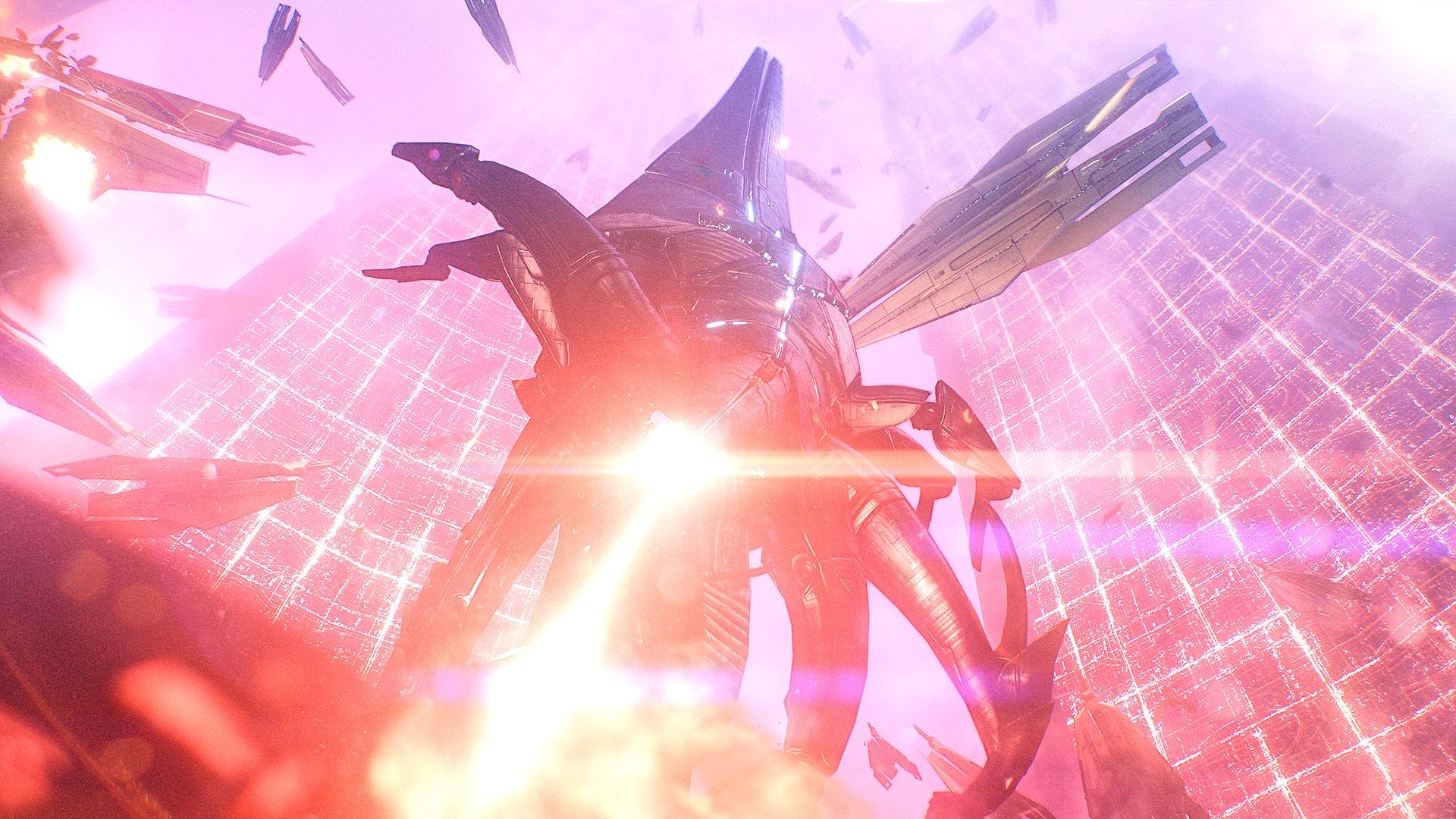
This one is one of the points where I believe Mass Effect clearly aims to be in dialogue with Tolkien more than with Martin—especially because, in Game of Thrones, while moments of "unity" do exist, they're often tense and carry an atmosphere of conflict that reflects the political and social dynamics of Westeros.
In fact, even when discussing how a potential Mass Effect series based on the original trilogy should be structured, I find it far more logical to think of The Lord of the Rings as a reference point than Game of Thrones. In Martin's work, the story is told through the perspectives of a wide range of characters spread across the various kingdoms of Westeros—many of whom never even meet. But when we think about Mass Effect, that kind of fragmented storytelling doesn't quite align with the experience we have in the original trilogy.
In the games, Shepard travels across the galaxy aboard the Normandy, building relationships with other species and forging alliances—just like Aragorn does throughout The Lord of the Rings. This works because Tolkien's saga is, at its heart, a "choral" narrative, but one focused on a single group of individuals who fight or have fought together. Game of Thrones, as mentioned earlier, features many major plotlines that never even intersect.
Of course, a Mass Effect series adapting the games couldn't focus solely on Shepard. It would need to explore other stories set in different locations. But even so, I don't think Game of Thrones' structure is the best fit. What I can imagine, however, is a show that treats the Normandy's crew as a kind of Fellowship of the Ring. Something like The Fellowship of the Normandy...?

Another topic where Mass Effect and The Lord of the Rings seem to be in dialogue is the concept of the ancient, looming threat. This idea of an archaic danger is, ironically, what drives both stories to directly engage with questions of race—of where humanity stands within a broader ecosystem of species, and how, despite vast cultural and biological differences, an old powerful threat emerges to place everyone on equal footing.
This is something deeply rooted in pure epic storytelling—this hopeful union of all peoples in the face of an approaching darkness. And it's why, once again, I insist that Mass Effect and The Lord of the Rings deeply understand one another.
We still don't know how George Martin will resolve all of this in the books, but Game of Thrones showed us that the alliance against the Night King and his army never truly united Westeros. And to be clear, I'm not suggesting that the unity seen in Middle-earth or the Milky Way is permanent. Aragorn still has to confront serious challenges once he becomes king, and old tensions remain.
As for Mass Effect, we don't yet know what happens after the events of Mass Effect 3—well, technically that depends on each player's choices. But what matters is that there was a pivotal moment of understanding among all species. A moment where ancient grudges were set aside, and a galaxy united under a shared banner.
And that's what's important: unity is possible. Understanding is possible.
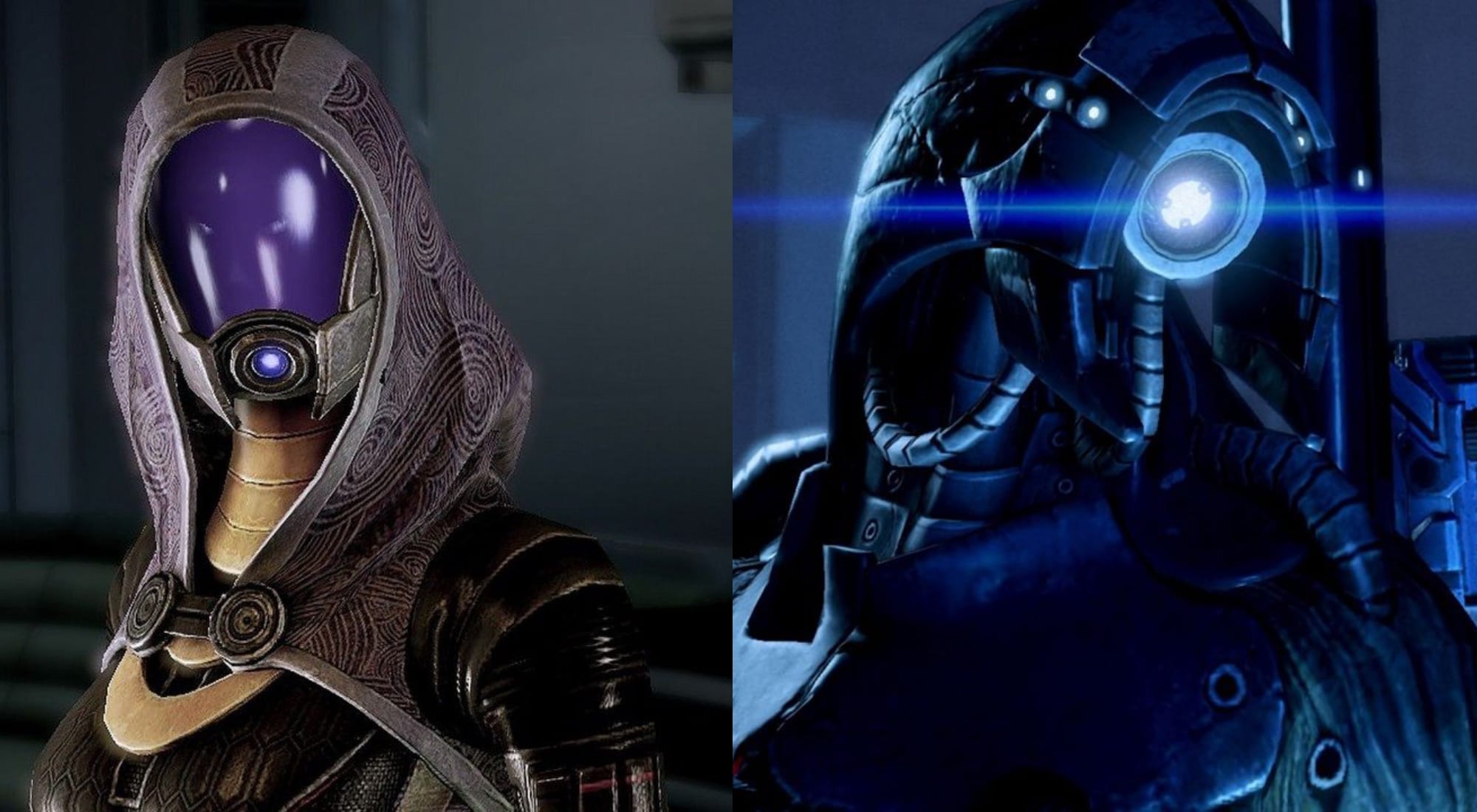
Among the many conversations happening between Mass Effect and The Lord of the Rings, one that I find both meaningful and especially important to the themes explored in both works is how each story handles the figure of the demonized living being.
In The Lord of the Rings, we have the orc—creatures who serve as foot soldiers for the great evil in Tolkien's work. One interesting thing Tolkien does is that, while he presents orcs as demonic creatures (the word itself literally means "demon" in its etymological roots), he occasionally tries to humanize them through subtle touches—though in my opinion, with limited success. I don't think this was something Tolkien thought through deeply, at least not during the actual writing of The Lord of the Rings.
There are moments that seem to suggest a more nuanced view—for example, the famous passage in the books where Faramir says he would not lie to an orc. But even that can be interpreted not as a sign of equality, but rather as an extreme example to prove his moral integrity: that he wouldn't stoop to lying, not even to the vilest creature imaginable.
However, after The Lord of the Rings was published, Tolkien did reflect more openly on the nature of orcs and whether they were inherently evil:
But even before this wickedness of Morgoth was suspected the Wise in the Elder Days taught always that the Orcs were not ‘made’ by Melkor, and therefore were not in their origin evil. They might have become irredeemable (at least by Elves and Men), but they remained within the Law. That is, that though of necessity, being the fingers of the hand of Morgoth, they must be fought with the utmost severity, they must not be dealt with in their own terms of cruelty and treachery. Captives must not be tormented, not even to discover information for the defence of the homes of Elves and Men. If any Orcs surrendered and asked for mercy, they must be granted it, even at a cost.* This was the teaching of the Wise, though in the horror of the War it was not always heeded.
It is true, of course, that Morgoth held the Orcs in dire thraldom; for in their corruption they had lost almost all possibility of resisting the domination of his will. So great indeed did its pressure upon them become ere Angband fell that, if he turned his thought towards them, they were conscious of his ‘eye’ wherever they might be; and when Morgoth was at last removed from Arda the Orcs that survived in the West were scattered, leaderless and almost witless, and were for a long time without control or purpose.
This servitude to a central will that reduced the Orcs almost to an ant-like life was seen even more plainly in the Second and Third Ages under the tyranny of Sauron, Morgoth’s chief lieutenant. Sauron indeed achieved even greater control over his Orcs than Morgoth had done…
-J.R.R. Tolkien, Morgoth’s Ring
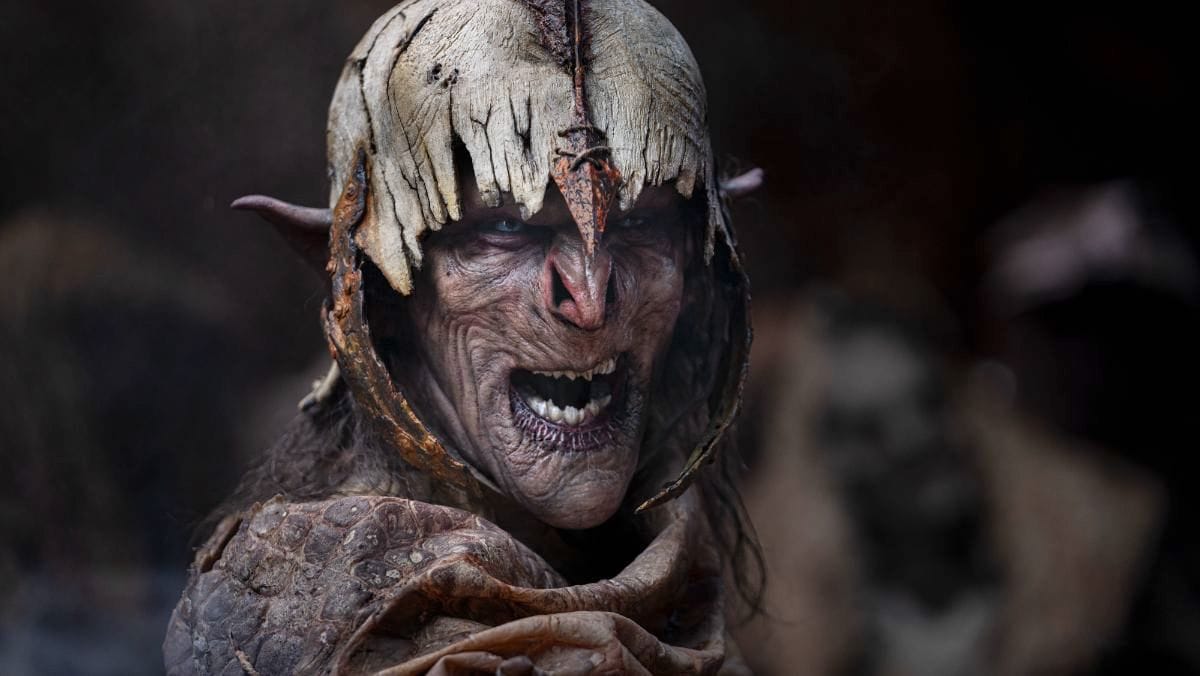
In Mass Effect, I think that while it tries to do something similar to what Tolkien does with the orcs, BioWare's execution is ultimately more satisfying—even if it's also achieved through subtle details, much like in The Lord of the Rings. A very clear example is the vorcha: a species of aliens that are widely seen as demonic, naturally violent, and unpleasant to look at. The galactic community wrongly assumes they are beyond redemption, but this is a simplistic and xenophobic analysis.
The truth, as shown by the asari on Parasc, is that if vorcha are raised in different social and material conditions, they can become fully functional citizens of galactic society. Of course, there's something problematic about what the asari did—there's a dark, colonial and imperialist aspect to using orphans to mine a planet for you—but that's a discussion for another day.
What matters is that both the vorcha and the orcs suffer from the same condition: shaped by their material, social, and cultural environments, they are forged in worlds of horror, where war, hatred, and fear are the foundations of their civilization. In stories as ensemble-driven as The Lord of the Rings and Mass Effect, where the question of unity in spite of differences is so central, I believe the humanization of demonized beings is one of the elements that gives these stories more strength and moral integrity.
For all these reasons—and those I've explored throughout this essay—I truly believe that Mass Effect is in deep conversation with Tolkien, rooted at the very core of its soul as a narrative work. Personally, I don't think it's possible to fully understand Mass Effect without also understanding Tolkien's influence and what his legacy represents in terms of storytelling.
This, as I always like to say, is why I love art: because art inspires more art. Not only through direct influence, but also through the quiet, profound dialogues that works of fiction can share across decades and genres. Just as Tolkien has shaped countless stories, Mass Effect too has left—and will continue to leave—its mark on those who come after.
We have an exciting future ahead of us with our beloved saga, and I hope this essay has sparked in you the same energy and curiosity for Mass Effect that it's sparked in me.
Sending you a big hug—wherever you are, you who are reading this.
Your friend,
Ariel
You can find all our social media profiles through our Linktree!
If you'd like to get in touch directly, feel free to contact us at: [email protected].
We are Mass Effect is a non-official fan site. All trademarks and intellectual property rights of Mass Effect are owned by Electronic Arts Inc. and BioWare.


